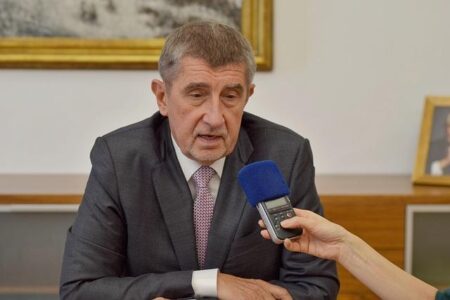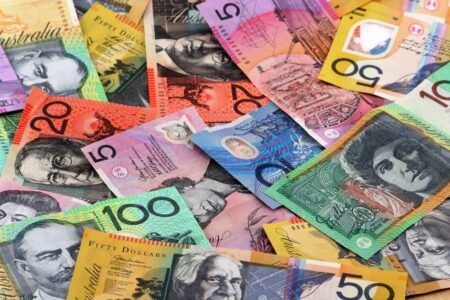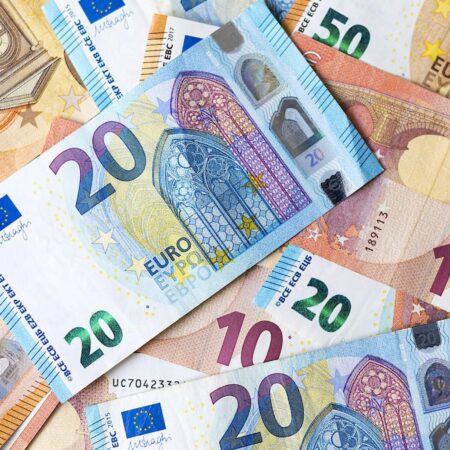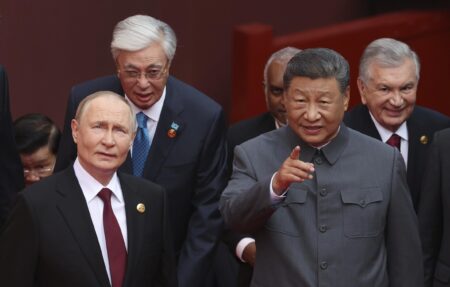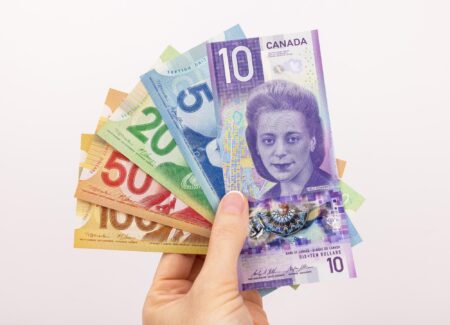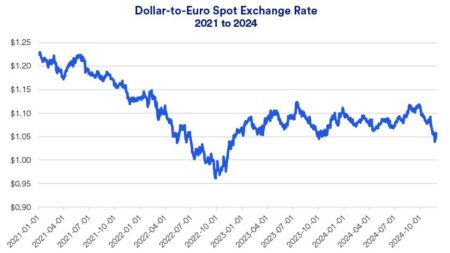Argentina has triumphantly fulfilled its repayment to the US for the currency swap agreement, Reuters reports. This significant achievement marks a major step forward in strengthening financial stability as the nation drives efforts to stabilize the peso and rejuvenate its economy
Browsing: foreign exchange
Argentina has launched exciting new foreign exchange bands along with a refreshed reserves policy, aiming to steady its currency and ignite investor confidence. This bold move directly confronts market volatility amid ongoing economic challenges
Argentina is gearing up to significantly increase its foreign currency reserves, currently held at US$251 billion in so-called “mattress dollars.” This bold move aims to stabilize the economy amid soaring inflation and volatile currency swings, reports Malay Mail
Argentina’s recent FX reform is shaking up the USD to ARS trading scene like never before. EBC Financial Group takes you inside the impact of these bold new regulations-uncovering how they’re redirecting currency flows, sparking market volatility, and revolutionizing trading strategies in this fast-evolving economic landscape
China set its yuan midpoint below market expectations, signaling a cautious and deliberate approach to currency gains. This move highlights Beijing’s strategy to ensure a steady yuan appreciation despite ongoing economic uncertainties, Bloomberg reports
The Japanese yen surged dramatically against G-10 currencies after Japan’s Finance Minister teased potential policy shifts. Traders sprang into action, propelling the yen upward amid a flurry of global currency activity
Brazil’s central bank is gearing up to inject a hefty $2 billion into the market through dollar auctions with a repurchase agreement on Tuesday. This strategic move aims to stabilize the currency and ease mounting market pressures, providing a vital boost to liquidity amid persistent global uncertainties
BREAKING NEWS: Japan’s Finance Minister delivers a powerful warning-if the yen experiences volatile swings, the government is ready to intervene immediately. Authorities are poised to act swiftly to ensure currency stability, KYODO NEWS reports
The rupee’s sharp dive against the dollar shines a spotlight on India’s growing economic struggles, exposing soaring inflation concerns, wavering investor confidence, and significant hurdles ahead for policymakers, Asia Times reports
India is stealthily deploying a smart mix of market maneuvers and regulatory moves to stabilize the rupee, resolute in its mission to stop the sharp decline amid growing global economic pressures, Bloomberg reports
Japan Finance Minister Katayama emphasized the crucial role of maintaining stable currency movements, highlighting how this stability fuels economic strength and inspires greater investor confidence, during a recent statement to InvestingLive
The Australian Dollar slipped as China’s October trade surplus narrowed, signaling weaker demand for Australian exports. This development has stirred market concerns over China’s slowing economic momentum, putting pressure on AUD sentiment
The euro edged higher against the dollar as the greenback softened, dragged down by cautious U.S. economic data. Meanwhile, France’s recent policy shifts ignited fresh investor confidence, boosting optimism for the eurozone’s economic outlook
The U.S. and Argentina have just struck a landmark $20 billion currency swap deal ahead of the U.S. midterm elections, designed to enhance financial stability and supercharge their economic partnership, The Detroit News reports
Stocks slipped as global investors reacted to the twists and turns in U.S. Treasury yields, while the Argentine peso surged on a fresh wave of market optimism. This Treasury shake-up sparked a cautious atmosphere across emerging markets
Bessent emphasizes currency swaps as the smarter choice over direct cash aid, as Argentina works to stabilize the peso amid persistent economic challenges. This strategy aims to bolster reserves without increasing debt, signaling a savvy new approach to managing the crisis
China is rapidly slashing its reliance on the dollar, aggressively pushing efforts to elevate the yuan’s influence in global trade and finance. This daring move marks a pivotal moment in reshaping the future of the international monetary system
The Canadian dollar dipped further on Monday, weighed down by growing global uncertainties and a drop in commodity prices, according to market experts at Mitrade
The U.S. dollar exchange rate in Argentina has soared to an unprecedented AR$1,380, underscoring the nation’s escalating economic crisis. This sharp plunge in the peso’s value is fueling soaring inflation and putting immense pressure on everyday budgets, reports the Buenos Aires Herald
Argentina’s black market for dollars is witnessing a notable decline as the government takes steps to relax stringent currency controls. This strategic shift is designed to bring stability to the economy, yet hurdles remain. With inflation and economic uncertainty still looming large, public confidence continues to waver.











